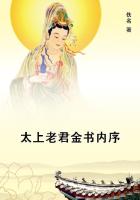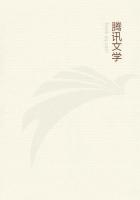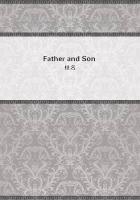Wyclif was now about fifty-eight years of age. He had rendered a transcendent service to the English nation, and a service that not one of his contemporaries could have performed,--to which only the foremost scholar and theologian of his day was equal. After such a work he might have reposed in his quiet parish in genial rest, conscious that he had opened a new era in the history of his country. But rest was not for him. He now appears as a doctrinal controversialist. Hitherto his attacks had been against the flagrant external evils of the Church, the enormous corruptions that had entered into the institutions which sustained the papal power. "He had been the advocate of the University in defence of her privileges, the champion of the Crown in vindication of its rights and prerogatives, the friend of the people in the preservation of their property. . . . He now assailed the Romish doctrine of the eucharist," but without the support of those powerful princes and nobles who had hitherto sustained him. He combats one of the prevailing ideas of the age,--a more difficult and infinitely bolder thing,--which theologians had not dared to assail, and which in after-times was a stumbling-block to Luther himself. In ascending the mysterious mount where clouds gathered around him his old friends began to desert him, for now he assailed the awful and invisible. The Church of the Middle Ages had asserted that the body of Christ was actually present in the consecrated wafer, and few there were who doubted it. Berengar had maintained in the eleventh century that the sacred elements should be regarded as mere symbols; but he was vehemently opposed, with all the terrors of spiritual power, and compelled to abjure the heresy. In the year 1215, at a Lateran Council, Innocent III.
established the doctrine of transubstantiation as one of the fundamental pillars of Catholic belief. Then metaphysics--all the weapons of Scholasticism--were called into the service of superstition to establish what is most mythical in the creed of the Church, and which implied a perpetual miracle, since at the moment of consecration the substance of the bread was taken away and the substance of Christ's body took its place. From his chair of theology at Oxford, in 1381, Wyclif attacked what Lanfranc and Anselm and the doctors of the Church had uniformly and strenuously defended. His views of the eucharist were substantially those which Archbishop Berengar had advanced three hundred years before, and of course drew down upon him the censure of the Church. In his peril he appealed, not to the Pope or the clergy, but to the King himself,--a measure of renewed audacity, for in those days no layman, however exalted, had authority in matters purely ecclesiastical. His boldness was too much even for the powerful Duke of Lancaster, his friend and patron, who forbade him to speak further on such a matter. He might attack the mendicant and itinerant friars who had forgotten their duties and their vows, but not the great mysteries of the Catholic faith. "When he questioned the priestly power of absolution and the Pope's authority in purgatory, when he struck at indulgences and special masses, he had on his side the spiritual instincts of the people;" but when he impugned the dignity of the central act of Christian worship and the highest expression of mystical devotion, it appeared to ordinary minds that he was denying all that is sacred, impressive, and authoritative in the sacrament itself,--and he gave offence to many devout minds, who had approved his attacks on the monks and the various corruptions of the Church. Even the Parliament pressed the Archbishop to make an end of such a heresy; and Courtenay, who hated Wyclif, needed not to be urged. So a council was assembled at the Dominican Convent at Blackfriars, where the "Times" office now stands, and unanimously condemned not only the opinions of Wyclif as to the eucharist, but also those in reference to the power of excommunication, and the uselessness of the religious orders. Yet he himself was allowed to escape; and the condemnation had no other effect than to drive him from Oxford to his rectory at Lutterworth, where until his death he occupied himself in literary and controversial writings. His illness soon afterwards prevented him from obeying the summons of the Pope to Rome, where he would doubtless have suffered as a martyr. In 1384 he was struck with paralysis, and died in three days after the attack, at the age of sixty,--though some say in his sixty fourth year,--probably, in spite of ecclesiastical censure, the most revered man of his day, as well as one of the ablest and most learned. Not from the ranks of fanatics or illiterate popular orators did the Reformation come in any country, but from the greatest scholars and theologians.
This grand old man, the illustrious pioneer of reform in England, and indeed on the Continent, did not live to threescore years and ten, but, being worn out with his exhaustive labors, he died peaceably and unmolested in his retired parish. Not much is known of the details of his personal history, any more than of Shakspeare's. We know nothing of his loves and hatreds, of his habits and tastes, of his temper and person, of his friends and enemies. He stands out to the eye of posterity in solitary and mysterious loneliness. Tradition speaks of him as a successful, benignant, and charitable parish priest, giving consolation to the afflicted and to the sick. He lived in honor,--professor of theology at Oxford, holding a prebendal stall amid a parochial rectory, perhaps a seat in Parliament, and was employed by the Crown as an ambassador to Bruges. He was statesman as well as theologian, and lived among the great,--more as a learned doctor than as a saint, which he was not from the Catholic standpoint.















